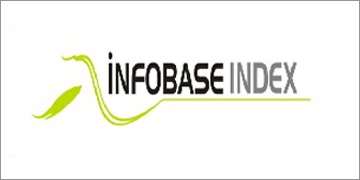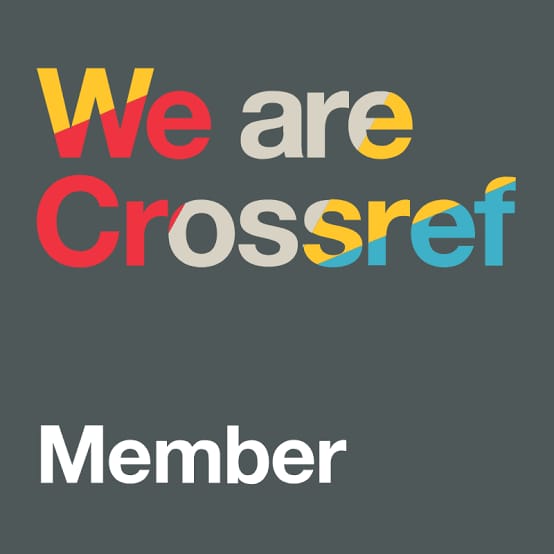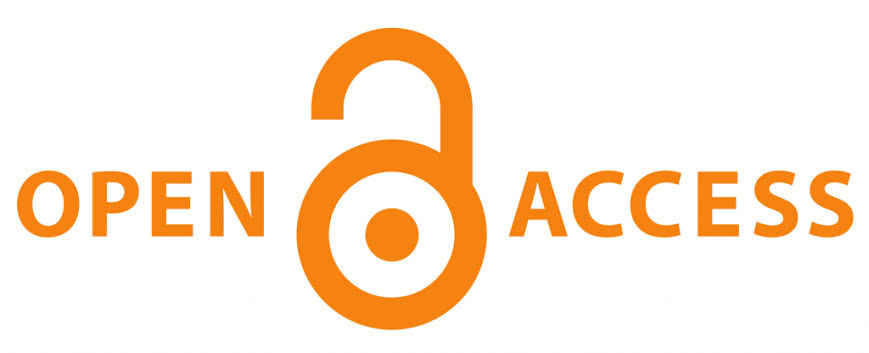KETIDAK ADILAN ACCESS BENEFIT SHARING (ABS) PENGETAHUAN TRADISIONAL MASYARAKAT ADAT DI MALAYSIA
Abstract
ABSTRAK
Penelitian ini dilatarbelakangi oleh suatu kondisi dimana pengaturan hukum di Malaysia terhadap perlindungan hak dan kewajiban masyarakat adat dalam memperoleh benefit dari pengetahuan tradisional yang dimiliki yang diturunkan dari generasi ke generasi terhadap perusahaan-perusahaan asing yang mengambil pengetahuan tradisional baik yang digunakan untuk penelitian maupun yang diambil untuk komersil atau Biopiracy belum diatur secara detail. Meskipun malaysia telah meratidikasi perjanjian yang memberikan perlindungan terhadap pengetahuan tradisional namun aturan tersebut masih belum mampu memberikan jamina perlindungan hak masyarakat adat. Adapun masalah dalam penelitian ini hukum nasional malaysia masih belum memberikan kepastian hukum terhadap pengetahuan tradisional yang di miliki masyarakt adat karena pihak yang mendapatkan keuntungan dari pengetahuan tradisional tersebut adalah pemerintah. Penelitian ini menggunakan pendekatan normatif yang menelaah teori dan konsep pengaturan pengetahuan tradisional. Hasil penelitian menegaskan bahwa hak kekayaan intelektual dalam pengetahuan tradisional masih belum memberikan keuntungan kepada pemilik asli dari pengetahuan tradisional yakni masyarakat adat. Keuntungan hanya diperoleh oleh pemerintah terkait sumber daya yang dimiliki masyarakat adat. Kesimpulan dari penelitian ini menegaskan bahwa pengeturan perlindungan pengetahuan tradisional masyarakat adat masih belum diatur secara maksimal oleh hukum nasional malaysia.
Kata kunci :pengetahuan tradisional, masyarakat adat, acces benefit sharing (ABS)
ABSTRACT
This research is motivated by a condition where legal arrangements in Malaysia for the protection of the rights and obligations of indigenous peoples in obtaining benefits from traditional knowledge that has been passed down from generation to generation against foreign companies that take traditional knowledge both used for research and those taken for commercial or biopiracy have not been regulated in detail. Although Malaysia has ratified treaties that provide protection for traditional knowledge, these rules are still unable to provide protection for the rights of indigenous peoples. The problem in this study is that Malaysian national law still does not provide legal certainty for traditional knowledge owned by indigenous peoples because the party that benefits from traditional knowledge is the government. This research uses a normative approach that examines the theories and concepts of traditional knowledge regulation. The results of the study confirm that intellectual property rights in traditional knowledge still do not provide benefits to the original owners of traditional knowledge, namely indigenous peoples. The benefits are only obtained by the government regarding the resources owned by indigenous peoples. The conclusion of this research confirms that the regulation of the protection of traditional knowledge of indigenous peoples is still not maximally regulated by Malaysian national law.
Keywords: traditional knowledge, indigenous peoples, access benefit sharing (ABS)
References
Daftar Pustaka
A. Buku
Dulay Zainul, Pengetahuan Internasiona Dasar Hukum Dan Praktisi. (Jakarta : Rajawali Pres, 2011)
Lindsey & Tim.” Hak Kekayaan Intelektual : (suatu pengantar). (Bandung: Asian Law Group, 2003)
Sudaryat, dkk, Hak Kekayaan intelektual memahami prinsip dasar, cakupan, dan undang-undang yang berlaku. (Bandung : Oase Media, 2010).
B. Jurnal
Abdullah, M. F., Othman, A., Jani, R., Bartholomew, C. V., Pesiu, E., & Abdullah, M. T. (2020). Traditional knowledge and the uses of natural resources by the resettlement of indigenous people in Malaysia. JATI-Journal of Southeast Asian Studies, 25(1).
Campbell, Y. M., Ghazali, K., & Suffian Sahuri, S. S. (2016). Preserving indigenous knowledge through folk narratives: Podi and Ngoyu. JATIJournal of Southeast Asian Studies, 21.
Imran, Y., Wijekoon, N., Gonawala, L., Chiang, Y. C., & De Silva, K. R. D. (2021). Biopiracy: Abolish Corporate Hijacking of Indigenous Medicinal Entities. The Scientific World Journal, 2021(1), 8898842.
Kim Sooi, L., & Lean Keng, S. (2013). Herbal medicines: Malaysian women’s knowledge and practice. Evidence‐Based Complementary and Alternative Medicine, (1), 438139.
Lim, S. (2020). An Equitable Approach to Traditional Knowledge Protection. NYUJ Int'l L. & Pol., 53, 135.
Lopez, T. M., Nagarajan, R., & Thevi, S. S. (2012). Biodiversity: Implementation of the 1992 CBD in Malaysia. International Journal of Legal Information, 40(1-2), 273-308.
Ministry of Natural Resources and Environment (NRE). (2016). National Policy on biological diversity 2016–2025.
Nordin, R., Hassan, K. H., & Zainol, Z. A. (2012). Traditional knowledge documentation: preventing or promoting biopiracy. Pertanika Journal of Social Sciences & Humanities, 20, 11-22.
C. Undang-Undang
Access To Biological Resources And Benefit Sharing Law 2017 (Law No.792)
Biosafety Law, 2007 (Law No. 678).
Nagoya Protocol, Supra Note 18, Art. 5(5).
Protection Of New Plant Varienties Law 2004 ( Law No. 634)
Sabah Biodiversity Enactment 2000
Sarawak Biodiversity Law 1997 With Amendment 2014
D. Wabsite
Australian Government Department of Climante Change, Energy the Enviroment and Water. The Nagoya Protocol - Convention on Biological Diversity. https://www.dcceew.gov.au/science-research/australias-biological-resources/nagoya-protocol-convention-biological#:~:text=The%20Nagoya%20Protocol%20establishes%20a,any%20benefits%20from%20their%20use.
Clinic Research Malaysia. Access to Biological Resource and Benefit Sharing Act 2017(Act 795) Malaysia : Legal Opinion on the Implementation of the Act to the Clinical Trial Industry and its Negative Impacts. https://clinicalresearch.my/access-to-biological-resource-and-benefit-sharing-act-2017act-795-malaysia-legal-opinion-on-the-implementation-of-the-act-to-the-clinical-trial-industry-and-its-negative-impacts/#:~:text=The%20Act%20was%20announced%20by,biological%20resources%20are%20shared%20equitably
Convention on Biological Diversity. ARTICLE 8(J) - TRADITIONAL KNOWLEDGE, INNOVATIONS AND PRACTICES . https://www.cbd.int/traditional/intro.shtml
IPBES. access and benefit sharing. https://www.ipbes.net/glossary-tag/access-and-benefit-sharing
“Traditional knowledge – whether it’s the lullaby you learned as a kid or the family recipe that was handed down to you. Learn how traditional knowledge protection is afforded under IPR laws”. https://iptse.com/what-is-traditional-knowledge-and-how-to-protect-it/#:~:text=Traditional%20knowledge%20in%20IPR%20is,misuse%20of%20the%20knowledge%20base.
Govrement of malaysia. “Introduction To Access To Biological Resources And Benefit Sharing (ABS)”. https://myabs.gov.my/article/179. Diakses 23 June 2024
Martin Khor. “ A worldwide fight against biopiracy and patents on life”. https://www.twn.my/title/pat-ch.htm
Miranda. “The Malaysian New Plant Varieties Act 2004 – A comparative perspective”. https://www.mirandah.com/166-the-malaysian-new-plant-varieties-act-2004-a-comparative-perspective/.
WIPO, https://www.wipo.int/tk/en/databases/tklaws/articles/article_0012.html.
WIPO. Traditional Knowledge. https://www.wipo.int/tk/en/tk/#:~:text=Traditional%20knowledge%20(TK)%20is%20knowledge,its%20cultural%20or%20spiritual%20identity
DOI: 10.33751/palar.v10i3.10639
 Abstract views : 231
Abstract views : 231
Refbacks
- There are currently no refbacks.

This work is licensed under a Creative Commons Attribution-NonCommercial-ShareAlike 4.0 International License.

.png alt=)
























